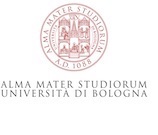FRANCO FARINELLI
|
 |
|
Global capitalism’s labyrinthine complexity makes every thing less and less easily read, and in order to answer to Frederic Jameson’s call for a “new cognitive map” it is necessary to engage with globalization just from a specifically geographical approach. The world we live in deals with a local-global dialectic, where local events constitute global structures which then impinge on local events in a iterative continuum. To try to understand the logic of this continuum it is possible only by investigating the ongoing transformations of state space, i.e. by making the genealogy of these following items: • The historical geography of the Westphalian interstate system and the nature of state space under modern capitalism| At the same time, the course will bring perspectives from humanities, mathematics and cognitive sciences to bear in considering from a critical point of view the nature of spatial models and the spatial rhetoric of the mainstream interpretations of globalization. |



